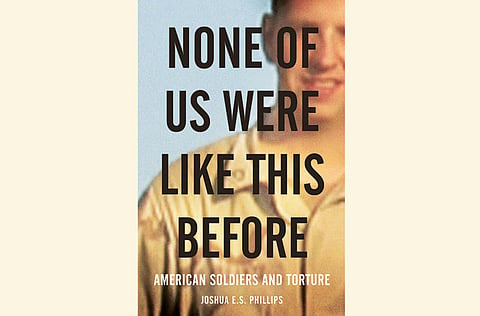Torture’s many tentacles
A shocking, in-depth look at how and why detainee abuse was carried out by US forces abroad.

Charles Graner, the newly-released Abu Ghraib torture "ringleader", can be seen grinning in the infamous pictures that revealed the American forces' treatment of detainees in Iraq.
Graner was recently released from prison, after serving more than six years of a ten-year sentence for abusing detainees, and was touted as leading other members of his team in the acts against prisoners.
The images came to light in 2004, causing international outrage. The prison's name has become synonymous with the acts that were carried out there. You would expect that the man who revealed his colleagues' wrongdoing would be recognised for his part in righting the wrongs of his fellow soldiers.
However, Sergeant Joseph Darby, who stumbled across the incriminating pictures by pure chance, was vilified by members of his own regiment, had to relocate under the military's witness-protection programme and lives in fear after numerous threats on his life.
Why was this the reaction from the US armed forces? In None of Us Were Like This Before: American Soldiers and Torture, Joshua E.S. Phillips examines why US forces in Iraq and Afghanistan turned to torture and detainee abuse as a method, the effects it had on local populations and ties with the forces, and how it affected the soldiers themselves.
For two of the soldiers he interviewed, their part in detainee abuse eventually ended in their demise. Sergeant Adam Gray returned from a year's tour in Iraq but died in his barracks.
Jonathan Millantz served with Adam Gray in the same battalion and eventually committed suicide after suffering post-traumatic stress disorder.
These two sergeants weren't the only two taking part in detainee abuse, however. While Abu Ghraib was painted as a few bad soldiers tarnishing the name of the US forces, Phillips reveals that the abuse was far more prevalent, almost rampant among soldiers tasked with interrogating suspects.
The lack of local knowledge, the use of government-sanctioned abusive interrogation techniques and senior military intelligence officers ignoring the torture that was going on under their noses, all led to this prevalence, the author writes.
The sanctioning, Phillips mentions in his book, was traced back all the way to the top, to the man who was secretary of defence then, Donald Rumsfeld.
In a memo, Rumsfeld handwrote a query about forcing detainees to stand: "I stand for eight to ten hours a day. Why is standing limited to four hours? D.R." he wrote.
Maintaining stress positions, including forcing inmates to stand for hours on end and depriving them of sleep for days, are examples of the abuse that occurred in both Iraq and Afghanistan.
In this brave journalistic examination of detainee abuse carried out by US forces abroad, Phillips also looks at the system by which other torture and abuse cases were investigated.
Finding it impossible to locate witnesses and victims of the abuse themselves after the incidents, investigators were forced to close many of the cases. This simply made it seem as if cases had been solved, where in fact many just led to dead ends.
Frighteningly, Phillips's investigation also revealed the extent to which it is believed torture actually works: a notion that has been spread through pop-culture.
Through films and popular television series, the notion that torture is effective is widespread. More frightening than this was the fact that the head of Homeland Security said the TV show 24 is true-to-life.
Written and researched over a period of five years, None of Us Were Like This Before took Phillips to Iraq and Afghanistan to undertake first-hand reporting.
An important, shocking book that takes a fresh, in-depth look at how and why detainee abuse was carried out by American forces abroad.
None of Us Were Like This Before: American Soldiers and TortureBy Joshua E.S. Phillips,Verso, 256 pages, $26.95.
Sign up for the Daily Briefing
Get the latest news and updates straight to your inbox

